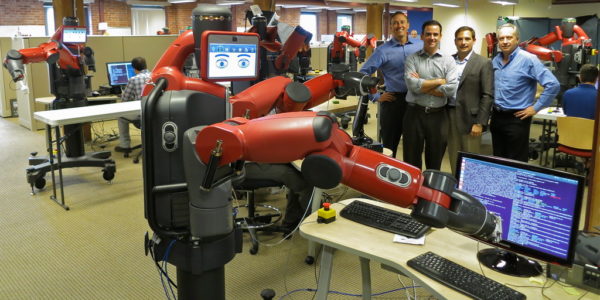An essay at Lexology points out that automation is becoming a necessity in view of labor shortages. Certainly, we know that the pandemic and the labor shortage together have had the effect of jump-starting automation and causing many companies to push forward with automation plans that were gradual or uncertain.
The authors also note that human beings worry about losing jobs to automation, even now when we have such severe labor shortages in so many places. People experience anxiety and even downright fear of a robot takeover.
The authors have a suggestion for employers facing this problem among their workers. “They should educate employees on the fact that the changes are not designed to cut jobs, but to help them perform their work and create opportunities for advancement,” they say.
Not a new idea
Have you read anything at all about automation lately? Seen stories about companies bringing in robots or about new kinds of automated systems? Somewhere in virtually every one of those articles is a point where the spokesperson says, “We are not replacing our people, just helping them perform their work and creating opportunities for advancement.”
That’s the standard reassuring statement. Amazon is not replacing human workers, but making their warehouses safer and creating opportunities for advancement. Walmart is not replacing employees, but freeing them from routine jobs and offering opportunities for advancement. Every company says this.
So we were a little bit amazed that the authors said that companies should “educate employees on the fact” of — fill in the blank with the standard statement.
Is it a fact?
A fact is something that is evident to everyone who looks at the information. If we’re all looking at the thermometer, we can see that it’s a fact that summers are hotter now than they used to be. Is it a fact that automation is not designed to cut jobs?
Not necessarily. Sometimes the object is to reduce labor costs, or to make it possible for the company to keep going in the face of labor shortages…by requiring fewer human workers…which is to say, to cut jobs.
In manufacturing, automation does reduce the number of human workers needed, and it can also increase the number of well-paid jobs. Sometimes for a different group of people from the ones whose jobs were automated.
A better plan
A better plan might be to include plans for the human workers displaced by automation in your plans for automation. Create opportunities for advancement or intentionally use the increased productivity to expand your business and thus create new job openings at the same level as the openings that are being lost.
In some companies, owners need to put their money where their mouth is. Education could be training to operate the new machines rather than presenting the standard reassuring statement as a fact.
